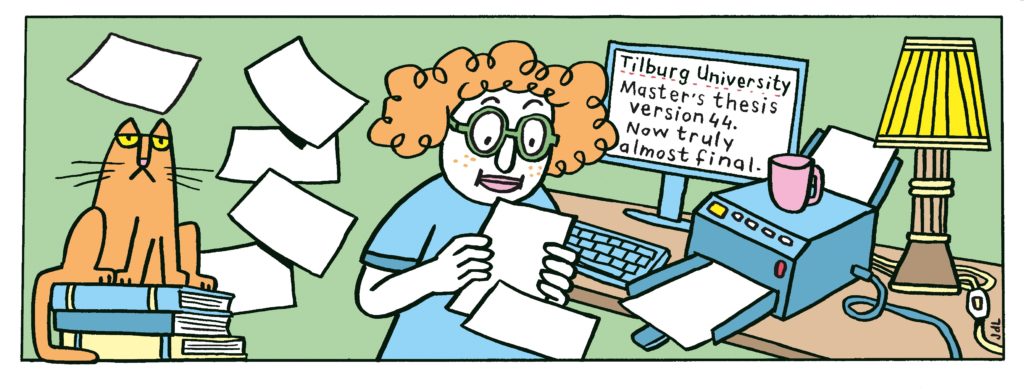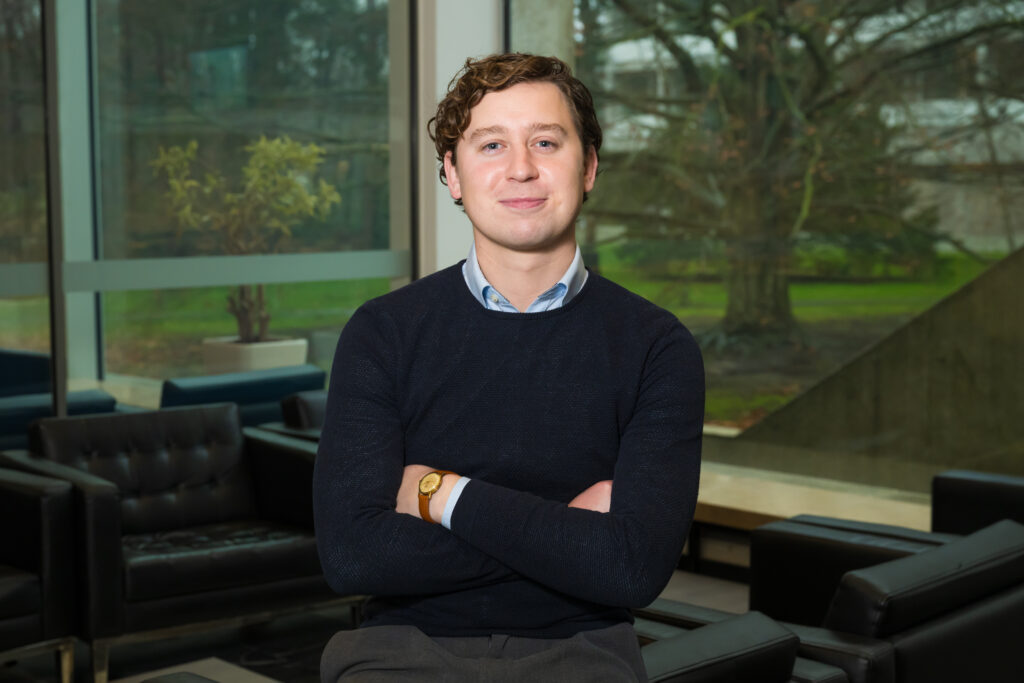Care for children with anorexia nervosa could be better. GGZ and hospital should share information with each other
Being asked a question about your weight or diet several times a day? ‘For patients with an eating disorder, this is a sensitive question,’ explains former Supply Chain Management student Aaron Lennips in his Master’s thesis. He studied how best to set up outpatient care for children with anorexia nervosa.

Where did the inspiration for your Master’s thesis come from?
‘In the past, I’ve had doubts about becoming a physical therapist or working in healthcare in some other way. I always found that interesting. Eventually, I ended up in supply chain management through all sorts of detours.
‘I knew that my thesis supervisor, Vincent Peters, has aspects in common with healthcare and regularly receives thesis assignments from hospitals. So I emailed him asking if he might have another assignment that would be suitable for me. As it turned out, he had a number of assignments on the shelf, one of which was anorexia nervosa in children.
‘I immediately thought it was a beautiful and appealing subject. In recent years, a number of documentaries (in Dutch) have appeared on this subject. These documentaries made a deep impression on me. It is an intense subject but also a very interesting and beautiful target group. During my thesis research, I learned a lot about this psychiatric disorder. There is an awful lot hiding behind an eating disorder.’
What is your thesis about?
‘My thesis research is about modular organization of care for children with anorexia nervosa. I also looked at whether modular organization affects continuity of care. That may sound a bit complicated. The modular organization of care can be compared to loose Lego bricks. They come in all different colors, shapes, and sizes, and they fit on top of other bricks. By clicking them together you can make your own structure.
‘A Lego brick is actually the same as a standard healthcare service. If you combine those standard care services—similar to Lego bricks you click together—you can create a range personalized care possibilities for each patient. That’s important because each patient is unique, has his/her own background and life story. That influences what the right treatment for such a patient looks like and what components are needed for that.’

How did you research that?
‘I focused mainly on healthcare providers and, therefore, talked to pediatricians at various hospitals and mental health workers. I asked them exactly what care they provide to children with anorexia nervosa. I also wanted to understand the specifics of the care and whether I could break it down modularly. In this way, I drew up a chart for six different hospitals mapping out the various care services.
‘From that, I was able to find out what care was missing within an organization, what care overlapped with other care organizations, and how that—by organizing care in a modular way—could be improved. I noticed that the GGZ and hospitals often gather the same information and do not share it with each other. That is not ideal or efficient. Moreover, it does not help the continuity of care.
‘For example, children with anorexia nervosa sometimes have to answer the same questions with different health care providers. This can be difficult, for example, when they are asked about their weight or eating patterns twice a day. For them, it would, therefore, be good if caregivers shared the answers to such questions.
‘There were also very interesting follow-up questions that resulted from my research that unfortunately I was not able to explore. My research mainly focuses on children with anorexia nervosa. What happens to the care of these children when they become adults? The pediatrician is then no longer responsible. It is unclear who follows up on the care then and how this care is arranged.’
Do you have a tip for upcoming thesis writers?
‘I actually have two tips. First of all, I would advise everyone to find a supervisor you really have a connection with. I got along very well with my supervisor. He was honest and immediately told me when I needed to work harder. In turn, I also wasn’t afraid to knock on his door if I had doubts about something or needed his help.
‘In addition, I found that it helped me tremendously to write my thesis research on a topic that I genuinely found interesting. As a result, I didn’t mind working hard, and immersing myself in the topic. I think this combination is what made it possible for me to get such a great grade. This enjoyable research experience eventually made me go into science. I am currently doing PhD research at Erasmus University in Rotterdam.’
Master’s thesis
A literature review, experimenting in the lab, or getting into the swing of things with SPSS? Tilburg University students write the most diverse theses. In the Master’s Thesis section, Univers highlights one every month.
Author: Aaron Lennips
Title: Modularity: Increasing continuity of care for children with anorexia nervosa in the Elisabeth-TweeSteden hospital
Supervisor: Vincent Peters
Grade: 8,5
Master’s: Supply Chain Management
Translated by Language Center, Riet Bettonviel






